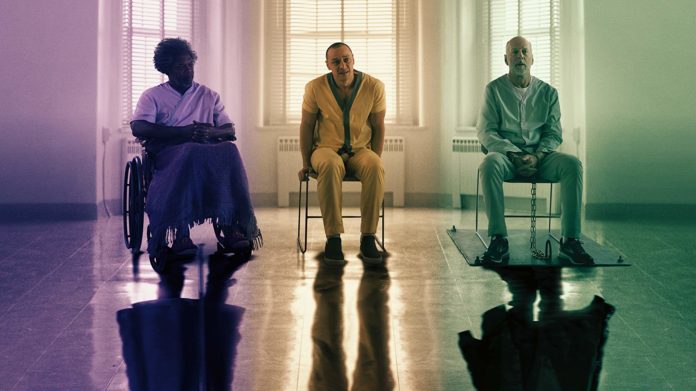If you enjoyed M Night Shyamalan’s film Unbreakable in the year 2000 and were then captivated by the shocking twist of 2016’s Split, then Glass, the final film of the trilogy, may just disappoint.
M Night Shyamalan shocked his audience in Split by revealing that Kevin Wendell Crumb (James McAvoy) exists in the same universe as Unbreakable’s David Dunn (Bruce Willis). We were then left anticipating how the superhero and alter ego from Unbreakable would be combined with the multiple personalities and psychotic behavior from Kevin (Split).
Unfortunately, the answer is that bringing the characters together in Glass simply did not work. In spite of incredible performances from McAvoy, the audience was left with a disjointed film that appeared rushed and unfinished.
Willis, Jackson and McAvoy – all proven successful actors – appeared to film their parts separately, leaving us with the sense that they were never actually in the same room.
Despite the clever philosophical dialogue and the examination of humanity’s capabilities, the audience was left with the sense that they were missing something. The characters did not appear to gel enough for us to suspend our disbelief, and we were left a little dazed and deflated.
The film was named after Samuel L Jackson’s character Elijah Price in Unbreakable. Elijah, aka Mr Glass, suffered from a brittle bone disease, making his bones susceptible to fragmentation and splintering. Since his arrest in Unbreakable, Mr Glass has spent his life drugged in a psychiatric hospital for the criminally insane.
We are introduced to David Dunn (Willis) as the superhero vigilante that has spent his life fighting crime and is currently attempting to seek out Kevin (McAvoy) after a series of girls were kidnapped and killed.
Their paths meet, ending in disastrous consequences, and they both end up getting arrested and taken to the same psychiatric unit as Mr Glass. It is here that the audience was waiting for the “fun” to begin. Unfortunately, with each character locked in separate rooms, we continue to wait for the interaction that we so desperately crave.
Dr Staple (Sarah Paulson) is well cast and does an excellent job of experimenting with each character’s mental states – with varying levels of success. The dialogue’s philosophical stance grows, and we ponder on the machination of the institution and how this fits into our established concepts of good verses evil. And yet, we still wait for the characters to interact so that a plausible plot can develop.
Sadly, other than a few fight scenes, there is no meaningful interaction between the three main characters. Bringing the two great films together thus left us with a forced crossover that is disappointingly weaker than either of its counterparts.
2/5











